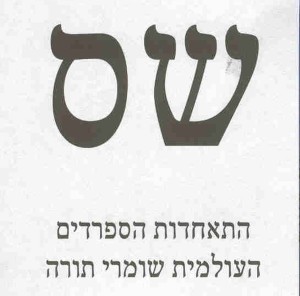Caroline Glick: The strategic cost of Israel’s political instability
When Yisrael Beytenu Chairman Avigdor Lieberman abruptly resigned his position as defense minister last November and started the countdown to the Knesset elections in April, he plunged Israel into a state of political instability. Following the April elections, by refusing to serve in a government led by Prime Minister Benjamin Netanyahu and so forcing Israel into a second election, Lieberman prolonged the instability he instigated.Where did Bibi go wrong? - analysis
Tuesday’s elections ended in deadlock. Neither major party can form a governing majority. And so, there is no end in sight for the instability Lieberman provoked and prolonged.
Israel’s prolonged political volatility and uncertainty have had a disastrous impact on Israel’s strategic flexibility. Indeed, it has induced strategic paralysis. Israel cannot respond in a meaningful way to threats or take advantage of strategic opportunities that present themselves.
The implications of this dire state of affairs were brought to bear twice in one day during the campaign. In a press conference last Tuesday, Netanyahu announced his intention to apply Israeli sovereignty to the Jordan Valley after the elections. Netanyahu’s announcement included the revelation that US President Donald Trump supports the move. American officials backed his claim after the fact.
This was a stunning development. No US administration has ever supported Israel’s right to assert its sovereign rights in Judea and Samaria without Palestinian permission until now.
But the media and Netanyahu’s political opponents on the left and right ignored this basic fact and instead derided his statement as nothing more than a cheap election stunt to rally his base.
In a way, they were right. After all, all Netanyahu did was make a promise. But it was due to Israel’s strategic paralysis that he had no other option.
‘Six things does the Lord hate,” observed King Solomon, and “seven are an abomination unto him” (Proverbs 6:17-19). Three of those – “a proud look, a lying tongue,” and “him that sows discord among brethren” – add up to Bibi Netanyahu’s moral meltdown and political demise.Appeasement vs. incitement: two takeaways from the Israeli election
Pride made Israel’s longest-serving prime minister misjudge the mainstream electorate’s size, priorities and feelings, which under his sleepy radar traveled steadily from respect through doubt to wrath.
The social discord he sowed as a matter of ploy and habit needs no elaboration, nor does the “lying tongue” he deployed while libeling almost everyone, from judges and cops to the entire press.
At this writing it is too early to say that Netanyahu’s 37-year public career is over. It is not too early to say that a critical mass of the electorate this week announced the beginning of its end.
Having entered this election with 41 lawmakers (Likud’s 35, Finance Minister Moshe Kahlon’s four, and Moshe Feiglin’s equivalent of two) Netanyahu lost a fifth of this original electorate. Yes, in terms of parliamentary blocs we face a cloud that will take time to scatter, but on the personal level this poll produced a resounding vote of no confidence in a leader who lost touch with his nation and task.
NETANYAHU MISJUDGED the voters on three planes: the social, the institutional and the ideological.
Socially, he assumed that average Israeli Jews see Israeli Arabs as fair game. In his superficial reading of Israeli society – a binary us-and-them dichotomy between “the Left” and “the Right” – the former are ready to give “the Arabs” everything and for no price, while the latter trust not one Arab, will cheer any anti-Arab broadside, and will prize whoever delivers it.
We don’t yet have a prime minister candidate, nor a clear path to a government. Both will take some time. But there are already valuable and useful lessons that have emerged from this week’s election.
The first relates to Israel’s Arab population. For years, the Arab Knesset members focused on nationalistic issues in the parliament, serving as the mouthpiece of the Palestinian Authority in decrying “the occupation,” criticizing the Israel Defense Force, and not indicating any desire to be partners in the leadership of Israel.
Arab MK’s would not even recommend anyone to be prime minister lest they be accused of having any association with Jewish candidates from Zionist parties. The recognition that their representatives would not be working for their interests and needs, and would not even consider joining a government which is where real societal reforms can be made, played a significant role in the low Arab voter turnout in past elections.
But in this election, MK Ayman Odeh, chairman of the Joint Arab List, changed course. He gave an interview in Yediot Aharonot just a few weeks ago in which he said, “I want to lead Arab politics from a politics of protest to a politics of influence. We are 20% of Israel’s population, and we are needed to bring equality, democracy and social justice to Israel.”
While Odeh ruled out the possibility of joining a Netanyahu-led government, he presented four conditions for entering a Gantz-led government:
“The first is the construction of a new Arab city and redoing the rules to allow for more Arab construction and stopping demolitions in Arab areas. Second is a government focus on fighting crime in Arab areas, including an operation to gather all the weapons that people own in the Arab population. Third is in the welfare realm including building a public hospital in an Arab city, and raising stipends for the elderly. Finally, there must be direct negotiations with the Palestinian leaders to bring an end to the occupation and to establish a Palestinian state, alongside canceling the Nation-State Law.”
The first three conditions focus on needs also relevant to the Israeli community and could be easily accepted by Benny Gantz. While the last condition is more complicated, the very fact that their leader is placing real day-to-day issues on the table as a possible entry into a government energized much of the Arab population, making them feel that it was worthwhile to vote to try to place their representatives in positions of influence. And that led to a larger Arab turnout than usual, which enabled them to stay in double-digit mandates despite the high turnout throughout the country.










































